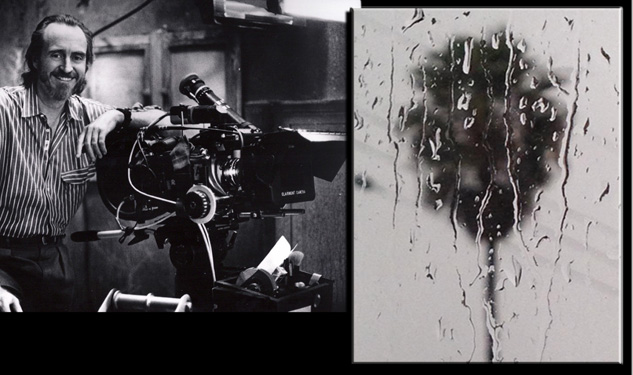
- Industry
Wes Craven, 1939-2015
Horror master Wes Craven died in his Los Angeles home this past Sunday August 30, 2015 after a long battle with brain cancer. He was 76.
After many years residing in Martha’s Vineyard, Craven had moved back to L.A. for treatment and work. He had written and was set to direct Thou Shalt Not Kill, an episode for the Weinsteins’ WGN miniseries Ten Commandments, and was working on the print edition of his graphic novel Coming of Rage, previously released by Liquid Comics in digital form. His last project as an executive producer, the thriller The Girl in the Photographs, directed by Nick Simon, will premiere at the upcoming Toronto Film Festival.
An avid user of social media, eight days before his passing Craven had posted a congratulatory tweet about the production of Walking Dead’s star Danai Gurira’s play Eclipsed, starring Lupita Nyong’o.
Wes Craven’s last photos on his Twitter feed were of his cats Cinnamon on August 1 – “Cinnamon looking wistful with Oscar the Grouch. #cats” and Loquita, on August 18,
12 days before his death – “Loquita feeling murderous at the vet. #cats”

Wesley Earl “Wes” Craven was born on August 2, 1939 in Cleveland, Ohio. Raised in a strict religious family, he received degrees in English and Psychology and a master’s in Philosophy and Writing. He never abandoned his interest in academia; in 1999 Craven told us: “I have several hobbies that most people wouldn’t guess about me. One is reading scientific literature, and I was fascinated by the advent of cloning and genetic research.”
After a stint as a college professor, Craven made a drastic shift in his life, moving to New York to work in the porn industry. His first job was as a sound editor in a postproduction company, but soon Craven was directing what he described as “hardcore X-rated films”, using a variety of pseudonyms.
In 1972 he felt secure enough in his filmmaking abilities to write and direct his first film, The Last House on the Left. He felt at ease in the genre, and followed his debut with The Hills Have Eyes and the comic book based Swamp Thing.
The big break, however, would come in 1984 with A Nightmare on Elm Street. A fresh new take on the teenagers-in-peril subgenre, Nightmare introduced the iconic Freddy Krueger character and launched a whole new style, mixing slasher elements with psychological themes frequently focused on the nature of reality.
Craven would develop a successful franchise around Nightmare and establish his name as a major leader and innovator in the horror genre. In 1996 Craven would once again establish a new standard with Scream, the first produced work of screenwriter Kevin Williamson. Inspired by a series of real serial murders in Florida, Scream introduced yet another iconic villain, Ghostface, and explored the connections between movie imagery and real life.
Scream went on to become a blockbuster, amassing $173 M worldwide and launching a new successful franchise for the Weinstein Brothers’ newly formed Dimension Films.
In his long and prolific career Craven directed 29 movies, almost all of them in the horror/thriller genre. An interesting exception is the 1999 drama Music of the Heart, starring Meryl Streep as an idealistic music teacher struggling to nurture talents in the tough quarters of New York’s East Harlem. “It’s been a long struggle to find somebody to support the idea that I can direct something besides a scary movie”, he told us back then. “Practically, I suppose of my own fault, that I did too good a job of being scary.” In spite of its modest returns at the box office, Music of the Heart was the sole Wes Craven film to receive a Golden Globe nomination – for Meryl Streep – and similar accolades at the Oscars and Screen Actors Guild.
Craven had recently signed an overall deal with Universal Cable Productions and had a number of projects in development at the time of his death. Among his projects were series The People Under the Stairs, for SyFy, Disciples, for UCP, We Are All Completely Fine, for SyFy/UCP and Sleepers for Federation Entertainment.
Craven is survived by his wife, producer Iya Labunka; sister Carol Buhrow; son Jonathan Craven; daughter Jessica Craven, stepdaughter Nina Tarnawsky and three grandchildren.
Ana Maria Bahiana

